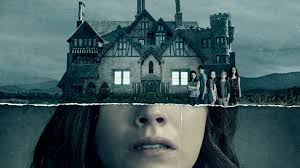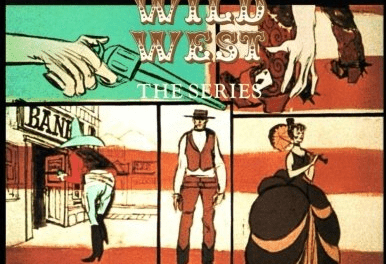The current controversies swirling around Hollywood in particular are a reminder, if any were needed, of just how damaging the use of sex through and as power can be, by intimidating those exposed to its horrors. Even if we exclude the notorious era of the studios’ “casting couches,” sexual scandals have abounded across the history of the industry. They are virtually all about men harassing women, as are the stories emerging today.
One factor in this latest series of revelations has been the missteps and complicity of many men in their responses to the discourse on Harvey Weinstein. I’m thinking in particular here of Oliver Stone, Ben Affleck, Tom Jones, Woody Allen, and Quentin Tarantino, whether they denounced, excused, or sought to trump the Weinstein scandal.
Stone avowed that ‘a man shouldn’t be condemned by a vigilante system’.
Affleck valiantly offered that he wished he’d known earlier about Weinstein so he could have done something about it. Rose McGowan said she’d told him long ago.
Jones shared with us that recording-industry men had propositioned him when he was young. Big news? But there did follow a flow of revelations about powerful men in popular music abusing women.
Allen said he felt ‘sad for Harvey that his life is so messed up’, while his estranged “son” Ronan Farrow reported in gruesome detail on Weinstein’s sexual violence.
Tarantino confessed that he knew what was happening and did nothing about it.
By contrast, a febrile discussion has been generated and massive solidarity engendered among women. For example, Emma Thompson has made extremely important points about how widespread this phenomenon is—beyond the mere culture industries. In a powerful denunciation, Molly Ringwald’s “All the Other Harvey Weinsteins” details her own experiences of him as a bully and her sexualized mistreatment by others. She likens speaking out about such matters as akin to discussing the weather—until this new cri de coeur. And the Los Angeles Times has compiled a telling dossier about James Toback.
Theater has also been disclosed as a site of this reprehensible power-mongering, along with journalism—even magic and restaurants are now brought to the bar of public opinion as people feel empowered to speak out beyond the intimidation suffered for years.
We have entered what Vanity Fair is calling ‘the Harvey Ripple Effect.’
I am a small part of that effect, and I want to talk to you about my experience of sexual harassment. I think. In a minute.
It may be that in my various positions of professional responsibility I, too, have engaged in conduct unbecoming/power mongering. I hope not, but it is necessary to start by acknowledging that I assuredly benefit, as do many if not most men, from the opportunities and certainties given to me as a consequence of a gendered world of work that militates against equality and justice on the basis of social identity.
But I did have a consistent, repeated experience in which a senior person did unwanted sexual things to me on the job.
Here’s the deal.
In the late 1970s, when an adult teenager, I worked at a radio station of the Australian Broadcasting Commission. Most weekday mornings, at around 0645, I had to sign a book located on a rostrum to prove my attendance, just like everybody else. The rostrum was bracketed to the wall, and the book and accompanying pen were attached to the rostrum. To sign in, you had to stand flush with the rostrum, facing the wall, in a tiny alcove.
Each morning, the producer of the morning show, which succeeded the breakfast program for which I was the newsreader/JAFA (Just Another Fucking Announcer) would come up behind me and rub his groin against my ass and put his arms around me, fondling my genitals.
At that hour of the day, no one ever walked by, as I always hoped they would.
I was incredibly uncomfortable. I did not know the words ‘homophobia’ or ‘sexual harassment.’ I did know I shouldn’t remain prey to the anti-gay sentiment I had encountered at school, even though I had experienced some violent sexual activity by men there while a pupil. I had no language to describe what was being done by me, but didn’t wish to feel or act in an anti-gay manner.
I didn’t think of asking him to stop. I tried to make jokes of these encounters. I just wanted it all to go away. I didn’t enjoy it, and feared that I might get an erection as his hands played so persistently with my groin. It made going to work each day harrowing.
Unlike many of the women whose stories we have spoken, heard, written, and read over the last few days, I was not looking for a media future. I had no concept of a profession I wished to pursue. I just worked as a mere JAFA in a big organization, where this man had power. But that wasn’t the issue for me, in terms of fearing retribution. I had no desire to rise through the hierarchy of the ABC, and didn’t worry that he might prove an obstacle to my career or life in any way. But I lacked language and ideas to counter what he was doing.
So quite apart from the gendered differences between my situation and those of the women concerned, I had fewer medium- to long-term occupational aspirations at stake. I was not raped, I did not fear for my life, and my thoughts were not silenced. I just didn’t have a political logic with which to describe and deal with these encounters.
The man who did these things was creative, generous, and funny. Years later, we got back in contact and everything was fine. I never raised the subject with him. And nor have I told anyone else until now.
Toby Miller is Emeritus Distinguished Professor at the University of California, Riverside, the Sir Walter Murdoch Professor of Cultural Policy Studies at Murdoch University, Profesor Invitado at the Universidad del Norte, Professor of Journalism, Media and Cultural Studies at Cardiff University/Prifysgol Caerdydd and Director of the Institute for Media & Creative Industries at Loughborough University in London. His adventures can be scrutinized at www.tobymiller.org.




